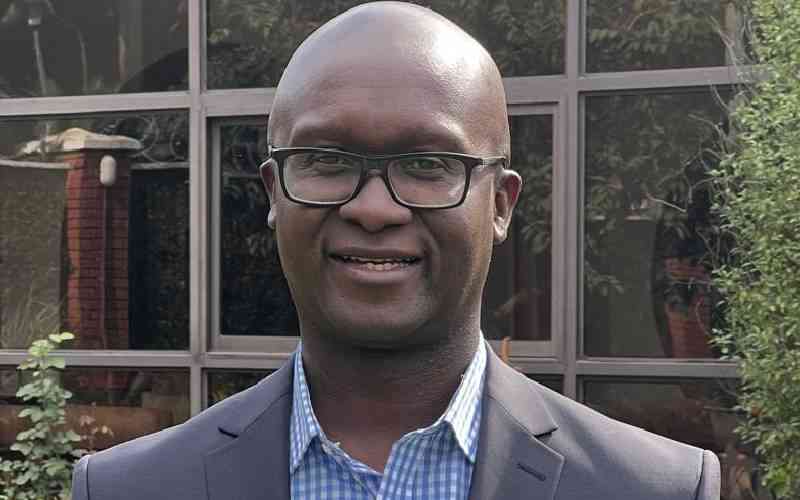By Joe Ombour
Bonjour is a simple word of greeting in French that rings no familiar bells to many Kenyans. Conversely, the English greeting "how are you?" would get sizeable response in a Francophone city crowd.
Kenyans hardly speak French, thanks to our education policy. In schools, only a fraction of students are interested in learning French if it is offered as a subject at all. Sample this: Of the 34,131 students who sat KCSE last year in 279 secondary schools that offer French, only 2,235 did the language, most of them girls. Boys were a paltry 760.
Yet French is the world’s second most important language, almost outweighing English in Africa. Internationally, French and English are the only languages spoken in the five continents.
French and English are the only working languages of the United Nations and its many arms besides other important global agencies such as the International Red Cross, the International Olympic Committee and the like.
The Education ministry ostensibly has no policy to promote the learning of French, says Mr Peter Otieno Owino, Chairman of the Kenya Association of Teachers of French.
He says in Francophone countries many are literate in English, which is taught as a school subject right from primary level.
Result? They have an advantage over their Anglophone counterparts in the quest for international appointments where qualifications include a working knowledge of both French and English. "They are also better off while visiting Anglophone countries because they do not have to struggle so much to get their way around," Owino says.
Move to popularise
Ghana is perhaps the only Anglophone country in Africa that has made a deliberate move to popularise the language by making it compulsory in all the schools.
In Kenya, a child is lucky to get exposed to French in primary school and even that luck is only possible in major urban centres where a few private schools accessible only to the privileged offer the language. French is not offered in public primary schools.
Even then, French is not an examination subject in KCPE and only a few secondary schools offer it.
What a pity for a country that prides in hosting the only United Nations office in the entire third world? The painful truth is that more Francophones man those offices where the knowledge of French and English are required.
Recently, when the Working Group on Communication for Education and Development advertised vacancies to be filled at its headquarters in Cotonou, Benin with the knowledge of English and French as a cardinal requirement, hardly any Kenyan applied. Applicants from Francophone countries filled the posts.
While on a trip to Gabon, life for me outside the International Conference Centre in the capital, Libreville, was to say the least, nightmarish in the absence of French in my vocabulary.
Stay informed. Subscribe to our newsletter
I had to gesture at Supermarkets and bars whenever I felt like wetting my throat. When my camera developed a mechanical problem, I went into town to have the problem fixed but I could not explain myself and nothing was done. Oh, how I wished I knew a smattering of French!
Owino describes as "below par" the level of French learning in Kenya, the home to one of the largest Alliance Francais (French Cultural Centre) in Africa.
He says that to facilitate the teaching of French, his association is striving to get the Teachers Service Commission directly involved in the teaching and popularisation of the language. "We are in the process of setting up 10 resource centres spread all over the country to improve the quality of French," he says.
"It is unfortunate that French at the moment is lumped together with other foreign languages by the Education ministry without regard to its international appeal," he says.
French Ambassador Ms Elisabeth Barbier, while launching the official website of the Kenya Association of Teachers of French recently, said with the expansion of the East African Community to include Burundi and Rwanda where French is widely spoken, it was only logical that the language is given more prominence in the other East African countries. The Lingustic and Education attachÈ at the French Embassy Mr Patrick Parrot said the International Federation of Teachers of French donated over Sh1.5 million last year to train its members to become international examiners.
 The Standard Group Plc is a
multi-media organization with investments in media platforms spanning newspaper
print operations, television, radio broadcasting, digital and online services. The
Standard Group is recognized as a leading multi-media house in Kenya with a key
influence in matters of national and international interest.
The Standard Group Plc is a
multi-media organization with investments in media platforms spanning newspaper
print operations, television, radio broadcasting, digital and online services. The
Standard Group is recognized as a leading multi-media house in Kenya with a key
influence in matters of national and international interest.
 The Standard Group Plc is a
multi-media organization with investments in media platforms spanning newspaper
print operations, television, radio broadcasting, digital and online services. The
Standard Group is recognized as a leading multi-media house in Kenya with a key
influence in matters of national and international interest.
The Standard Group Plc is a
multi-media organization with investments in media platforms spanning newspaper
print operations, television, radio broadcasting, digital and online services. The
Standard Group is recognized as a leading multi-media house in Kenya with a key
influence in matters of national and international interest.








